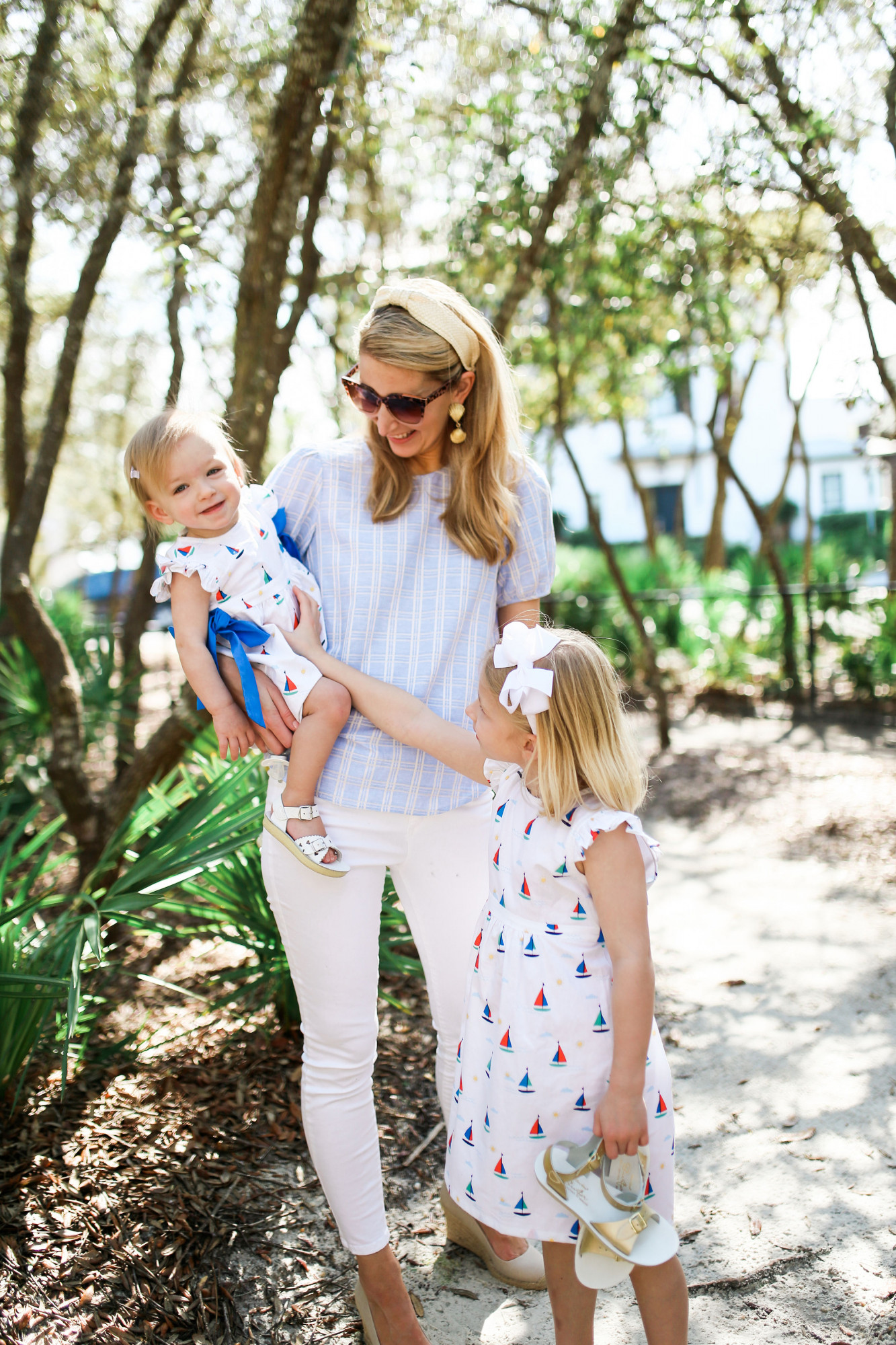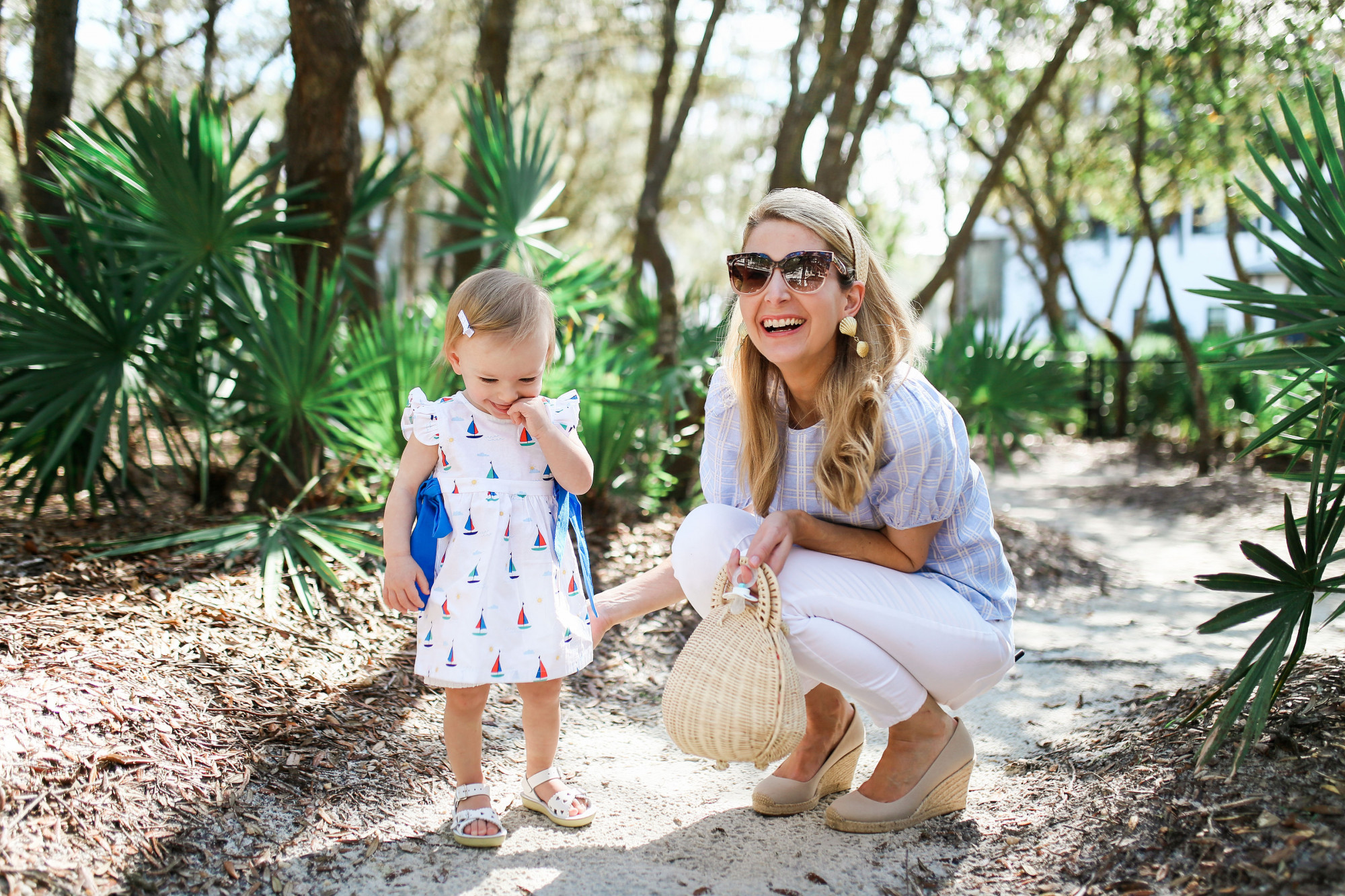
Can we all agree that there is nothing more cringe-inducing than a teen that won’t look up from his or her phone or video game to speak to an adult? Today is our third installment in our Children’s Manners series, where we are learning to instill gracious habits in our young children so that they will grow up to be gracious adults. Today I am sharing the manners my husband and I expect of our children when it comes to respecting elders – and why we expect them!
Teaching children to respect elders is something that’s not often taught in our very child-centered culture. But the key to gracious manners applies to everyone, particularly those who have been on this earth longer than we have. Or at least that’s how my husband and I feel as we teach our children to look adults in the eye and say “yes, ma’am” or “no, thank you” to neighbors, teachers, and grandparents.
That’s why it’s important to figure out the why in your expectations for children’s manners. (See Lesson #1!) Having a higher purpose for why you expect your children to have manners makes training these habits a bit easier for parents to teach and children to learn.
And as these manners become habits, you are training your children to not only have a respect for elders but also respect for authority, which will serve them well in school and eventually as they head to college and have jobs one day.
Habits to encourage respect for elders include, starting with ones that you can teach in toddler years:
- Saying “please” or “thank you”
- Looking adults in the eye when speaking or being spoken to
- Looking up from the television, iPad or book when an adult is speaking
- Standing up and greeting a guest who has entered our home
- Opening doors
- Letting elders walk in the elevator first or take the open seat
- Using proper titles
- Not interrupting or dominating an adult conversation. (More on this in a future post)

The best way for children to practice these habits is with elders whom children are often around: parents and grandparents! If we don’t expect our children to look us in the eye, or get up to greet their grandparents when they come over for dinner, how can we expect them to do that for their teacher or our neighbors?
As we are learned in the last manners series post about dining, the best place for children to adopt gracious manners is in the home and with family, with constant positive reminders and gentle correction. And lead by example, of course!
Now teaching respect for elders does not mean we also can’t teach children to respect themselves as well, particularly when it comes to protecting them against potential predators. (This question often arises when I speak about respecting elders.)
The “don’t talk to strangers” phrase can be confusing when we also tell children to respect all adults. I handle this by telling my young children it was okay to say hello and practice these manners if mommy is right there doing the same thing. This applies to family and friends but also being respectful of the lady at the cash register or the waiter at the restaurant.
How do/did you teach your children to respect elders? Would love you to share your tips or experiences!
Want to receive upcoming manners lessons in this series? Subscribe to receive emails from DoSayGive!
Photo: Brenna Kneiss






Love this series! What are your thoughts on how young children should address your adult friends? I grew up always using Mr./ Mrs. last name, and thought I would teach my children the same. Instead have slipped into Ms./ Mr. first name, which is easier for them to remember and pronounce. Maybe this practice will evolve as they get older, but for now feel like we are stumbling through.
I think try to teach Mr. or Mrs. with last name because as they get older they should do that anyway so might as well teach them properly from the beginning. (Unless it’s a super complicated last name!) Just keep working at it. It does get easier!